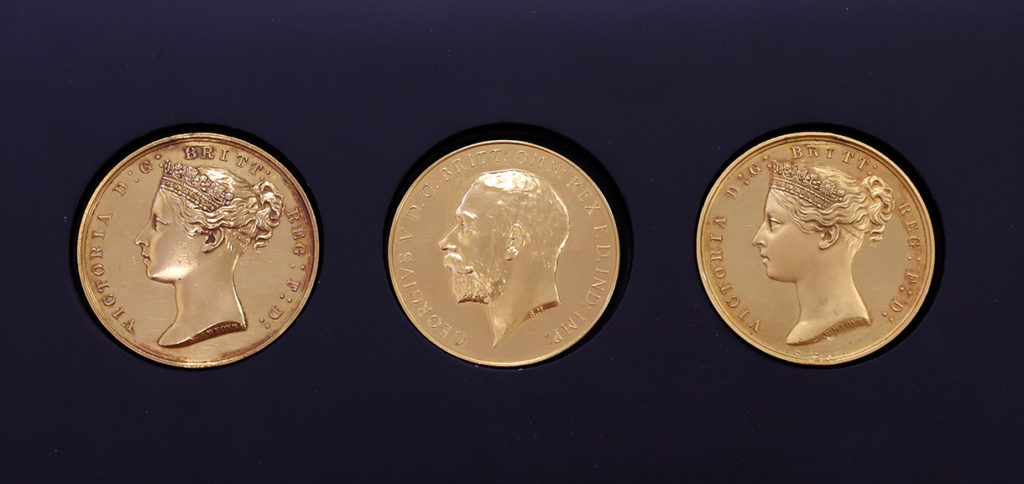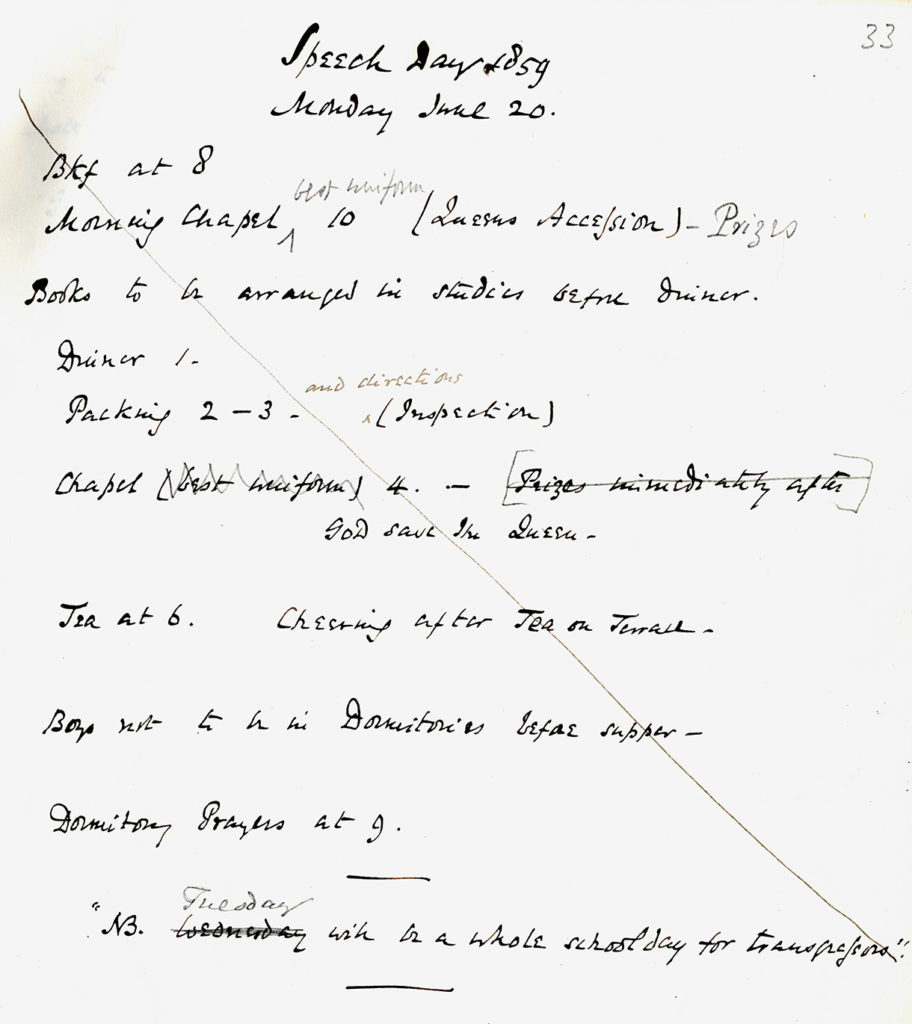Early Years
Wellington College’s first Speech Days were modelled on those held at older schools such as Rugby, where the first Master, Edward White Benson, had been a teacher. These had grown out of annual visitations in which the Governors would examine the students to see whether they ‘do profit by their learning or not’. To demonstrate their scholarliness, students recited Latin and Greek poetry and prose which they had written. These were the original ‘Speeches’.
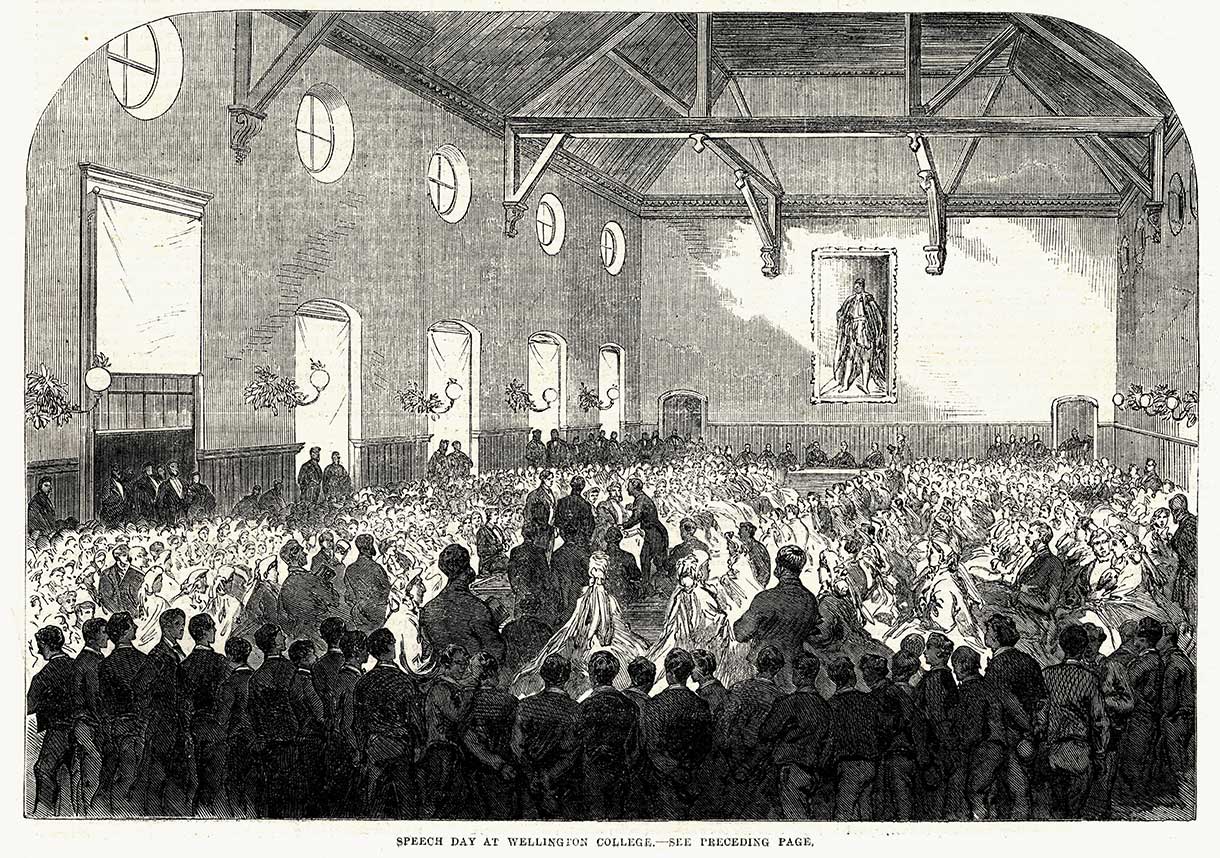
Early Years
As a school with a more modern curriculum, Wellington’s Speech Days included not only Greek and Latin recitations, but also performances of scenes from plays in French, German and English. Prizes were awarded for various subjects including sciences, languages and drawing, as well as the top prize, the Queen’s Medal, for general character.
In the early years it was not usual for parents to attend Speech Day, but royal patronage and the College’s distinguished Board of Governors meant that VIP guests were usually present. In 1861 Albert, the Prince Consort, laid the Chapel foundation stone on Speech Day. Three years later the Prince of Wales, later Edward VII, made the first of numerous Speech Day visits. By 1871 the Wellingtonian was remarking on the absence of royalty as something unusual! Vice-Presidents the Earl of Derby and the Duke of Wellington were also regular guests. A special train bringing the important visitors from London to Crowthorne soon became normal.
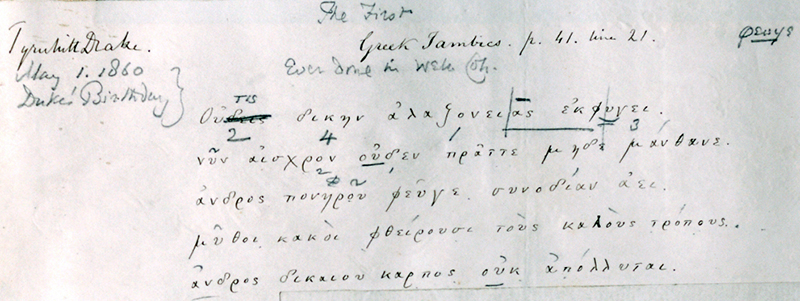
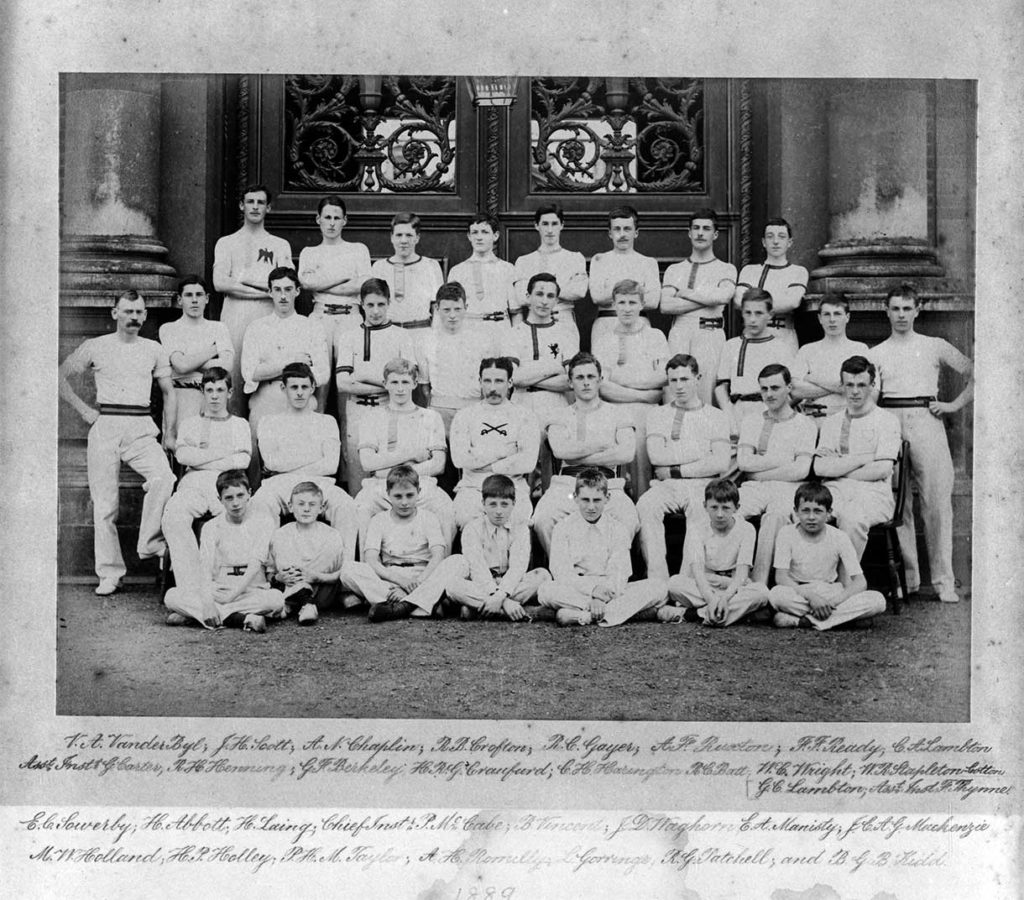
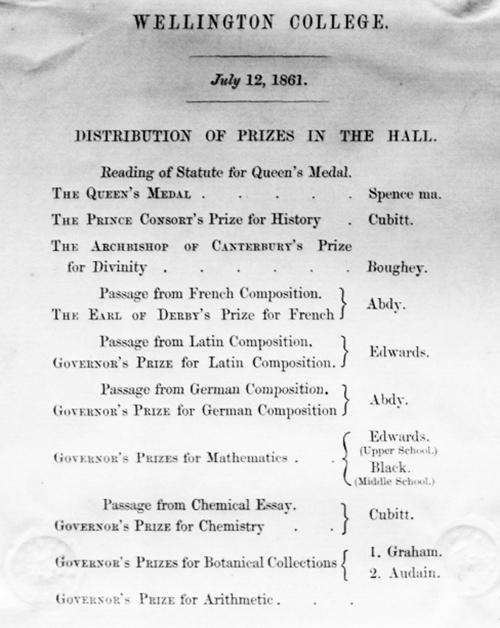
The prize-giving ceremony took place in what is now Waterloo Hall, and guests then had lunch in a marquee on South Front. In 1872 the first Speech Day Concert took place after lunch. The first students’ Art Exhibition was held in 1881, while in 1889 the newly opened Gymnasium (now the Old Gym) housed a Physical Training display for the first time.
The date for Speech Day rapidly became established as 18th June, the anniversary of the Battle of Waterloo. This tradition continued well into the 20th century, although guests frequently lamented the resulting clash with Ascot races.
